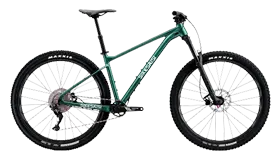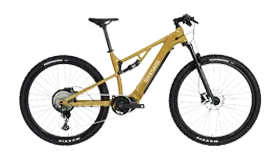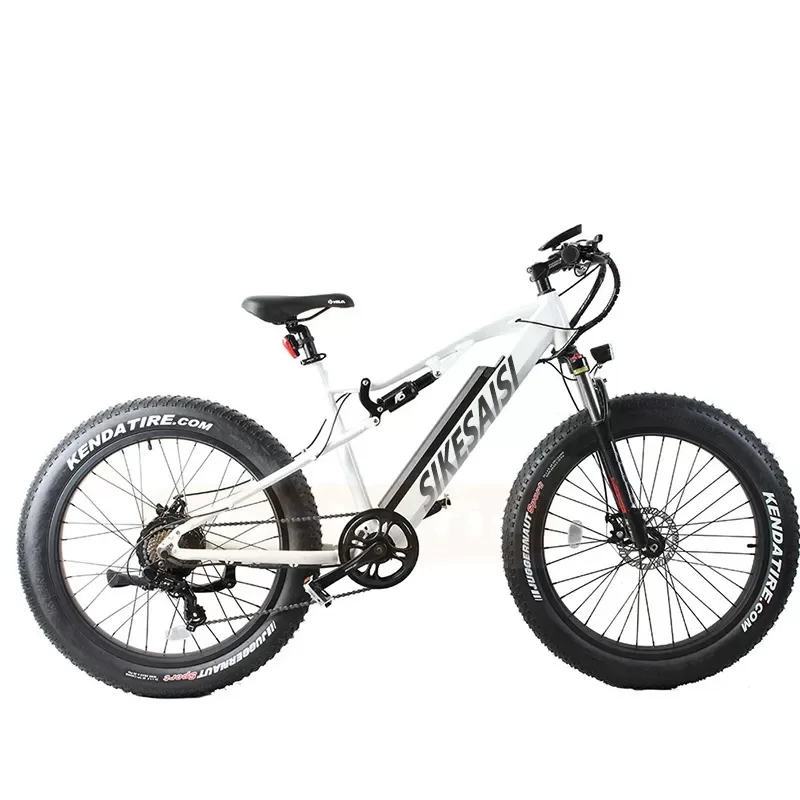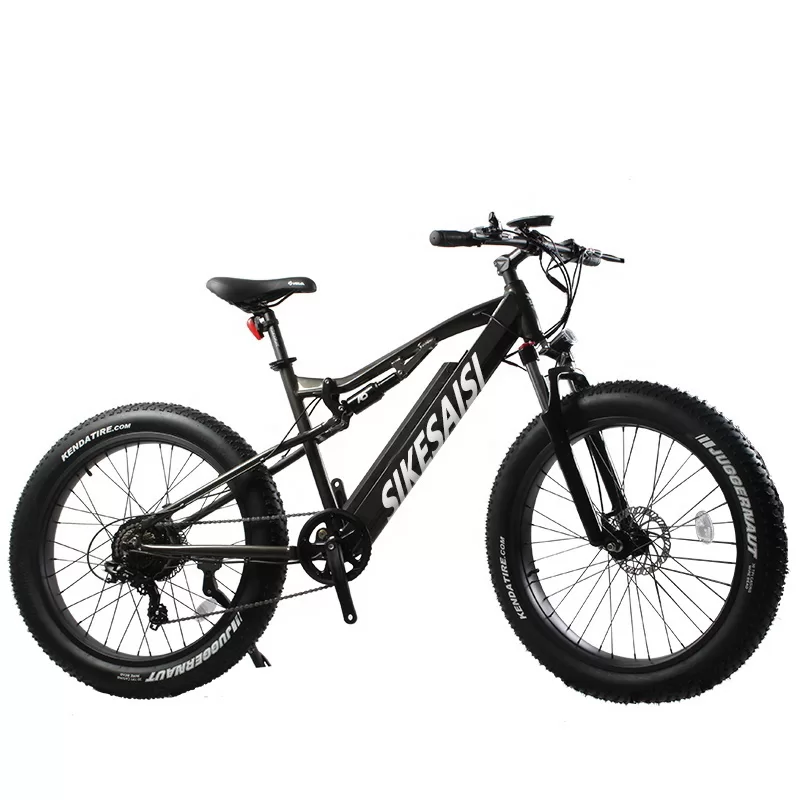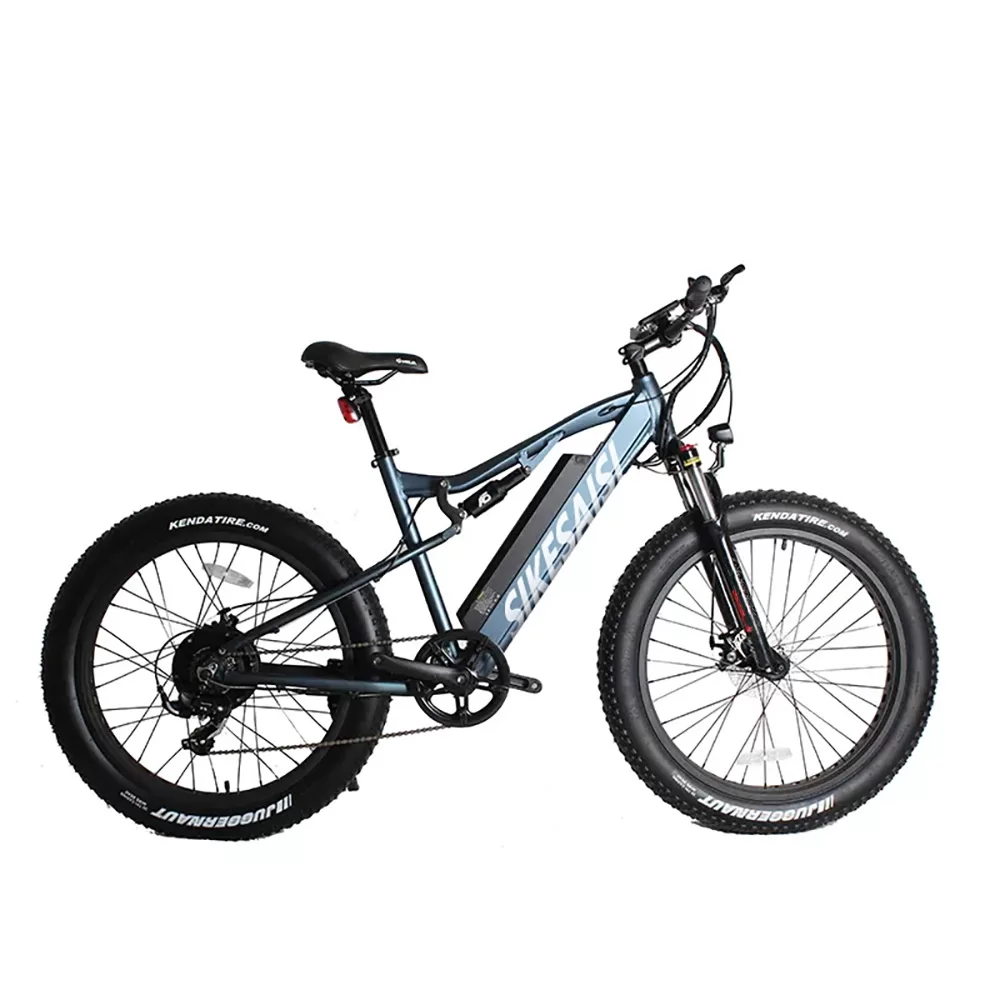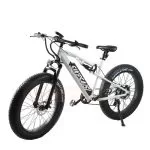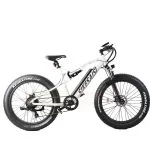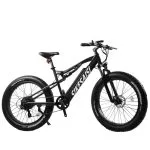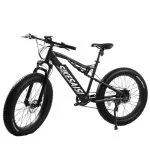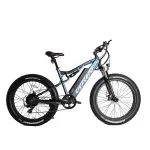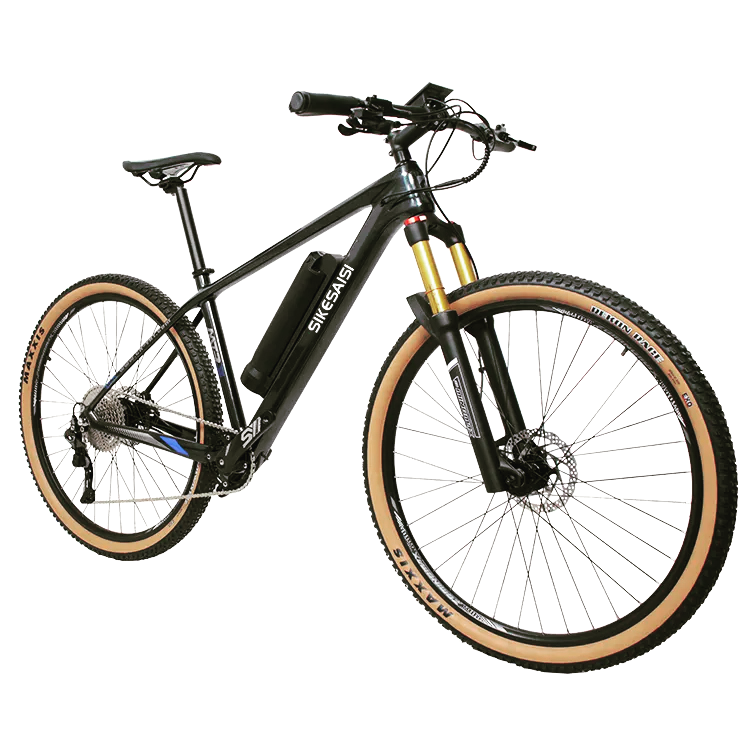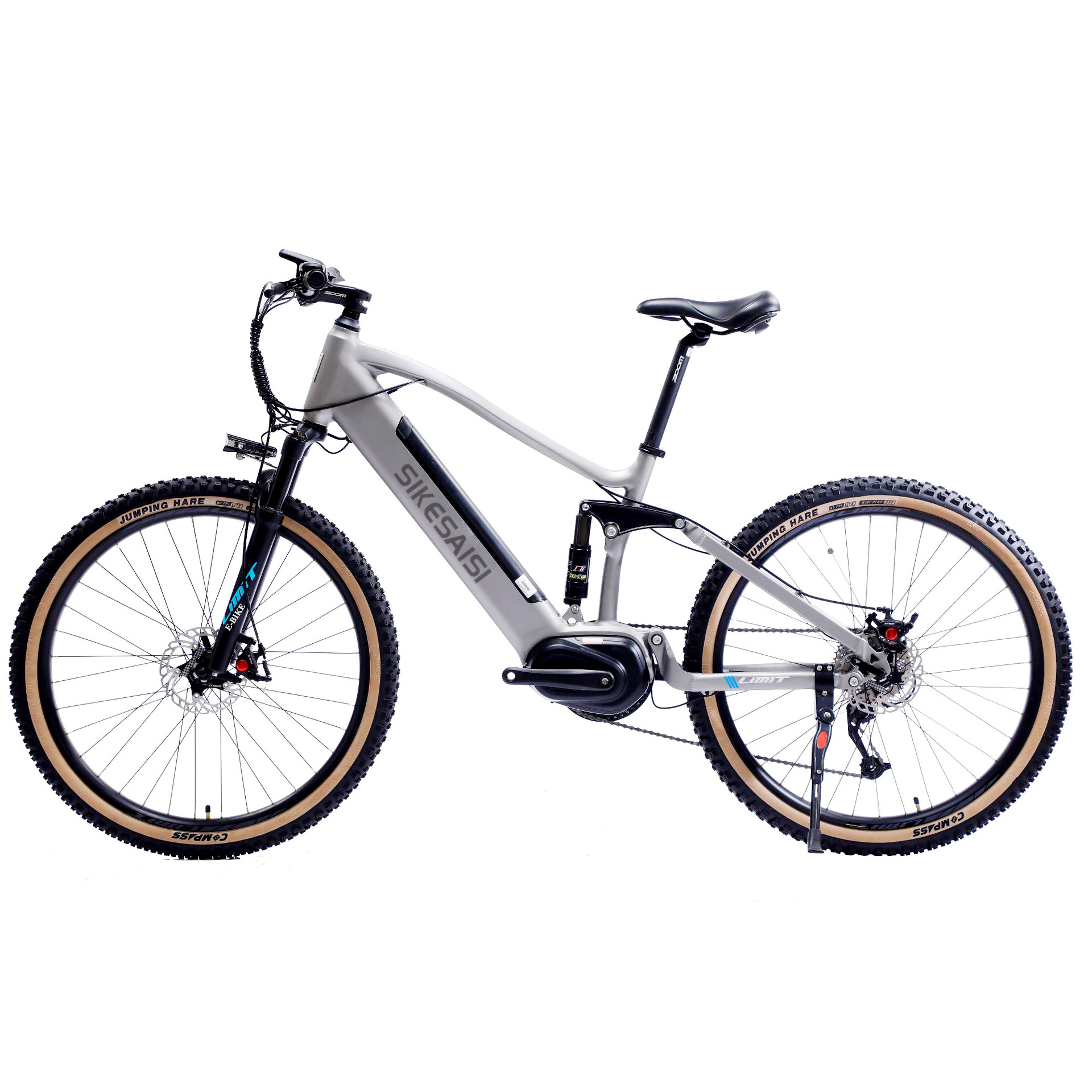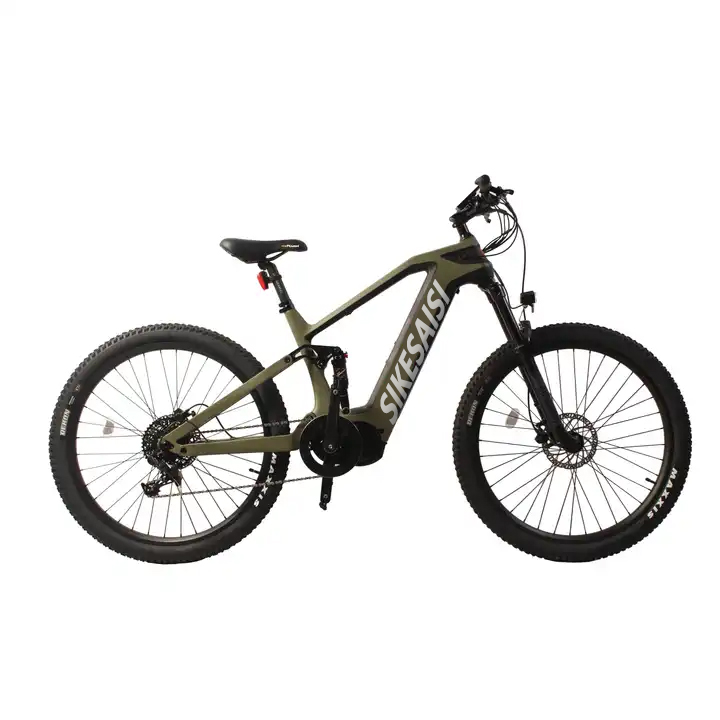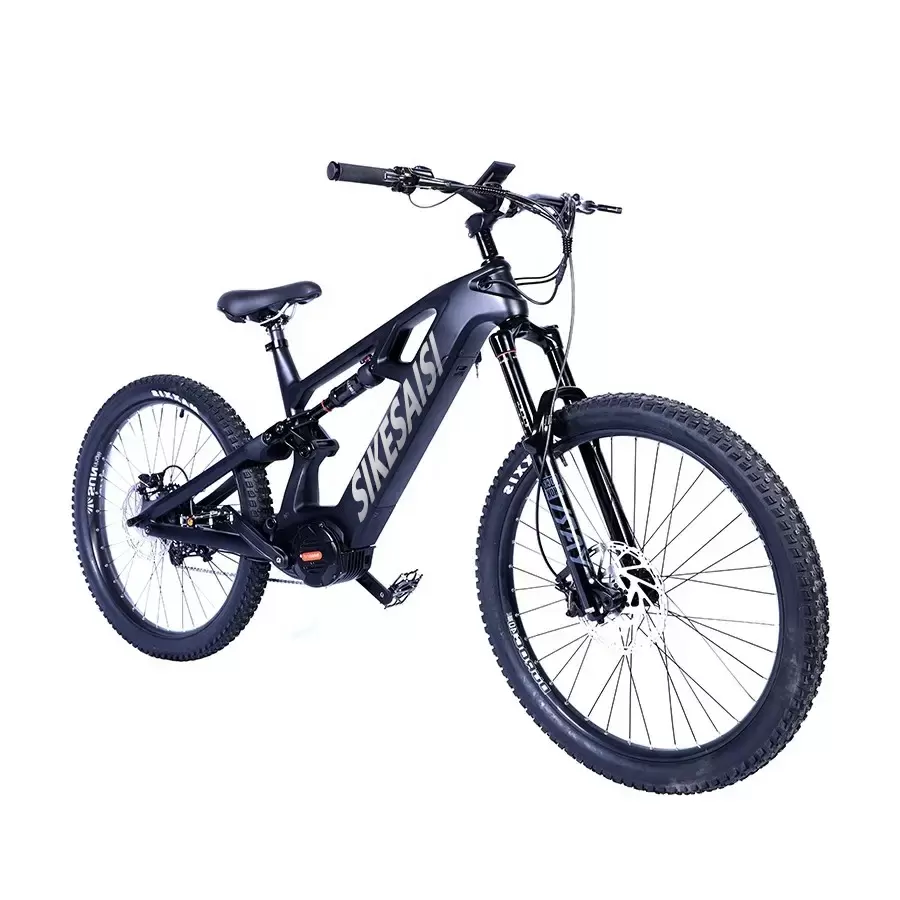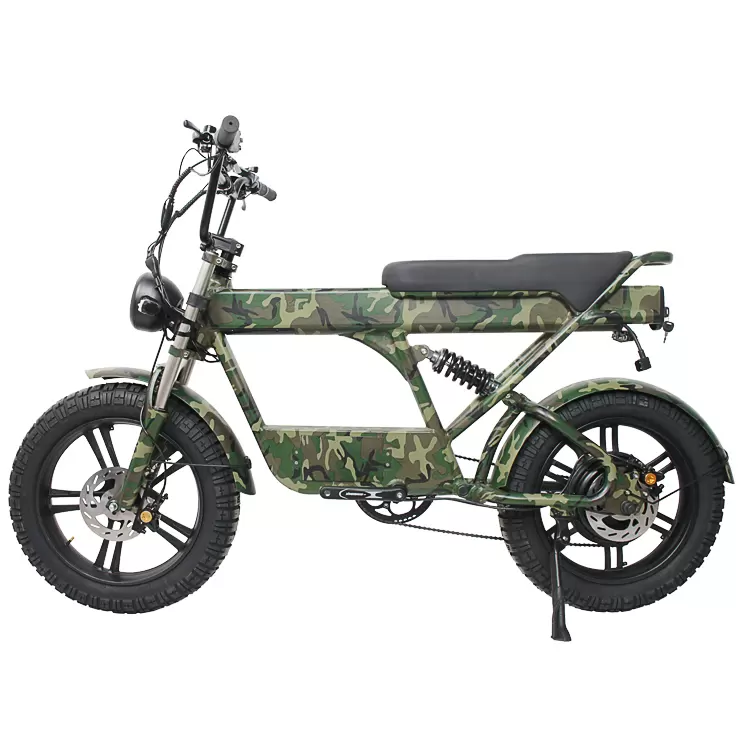Product Details
The Ultra Pro is our top-of-the-line model, designed to enhance performance. It features a high-quality aluminum alloy frame and 26×4.5″ wheels sourced from renowned brands such as Kenda, Maxxis, and CST. With a front fork and mid-shock air suspension, it offers excellent shock absorption. The F&R Tektro disc brake provides safety when riding. The Shimano 7 Speed derailleur ensures smooth gear shifting, while the anti-rust KMC chain provides durability. Equipped with torque-sensing electric power technology, the Ultra Pro offers a battery-assisted mode and three riding modes, catering to users of all ages.
Suggested the people height 175cm
Customization is Available
MOQ: 01 pc
Our Services
- International Warehouses (Poland and USA)
- Quality Controls (ISO 9001, CE)
- Finished Product Inspection
- Warranty Available 2 Years
Options
- The Alloy, Titanium, and Carbon Fiber frame is lightweight and easy to ride.
- Powerful up to ranges from 250-1000-watt rear hub motor in a smaller package.
- 8Ah-41Ah long-lasting removable Li-ion battery. 100 km maximum mileage & 45 km/hr. maximum speed in a single charge.
- The pedal-assist mode could be 160KM range.
- Excellent quality alloy frame/ carbon fiber and titanium.
- The tires from famous brands like e.g., Kenda, Maxxis, CST, and Continental are used for MTB and Snow Bikes.
- With SHIMANO or SRAM transmission system.
- Equipped with Torque-sensing electric power technology.
- Air suspension fork/Oil suspension fork, Spring suspension fork.
Three Riding Modes:
° Electric Mode: Select the Pas assist mode and rotate the throttle to obtain speed without using pedals.
° Assist 5 Modes: Select Pas assist mode, and use the pedal, do not need to select throttle.
° Manual Mode: Use the pedal directly without opening the meter.
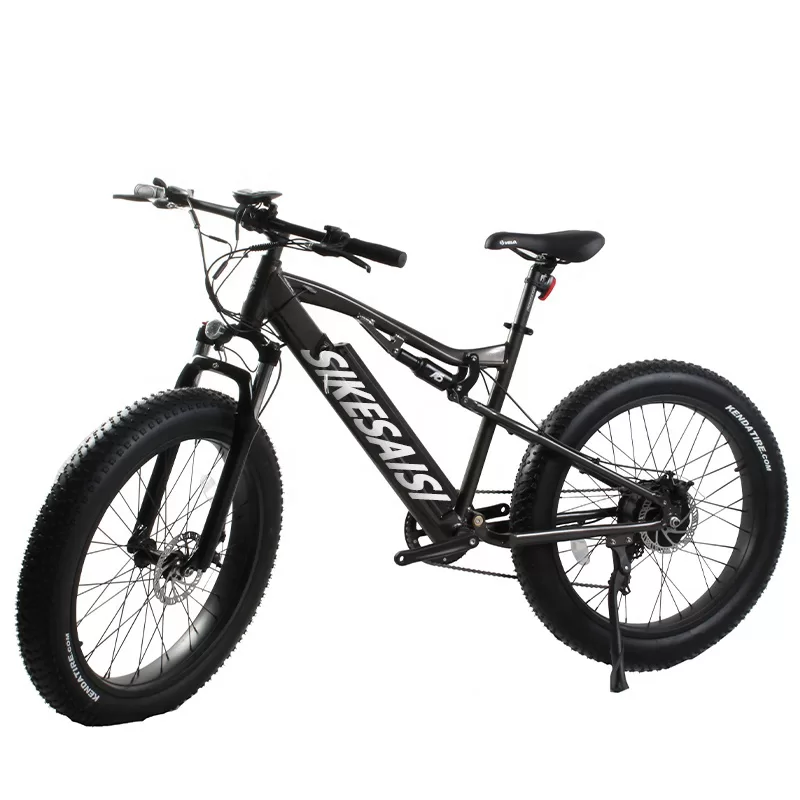
| Model Number | Sikesaisi | Color | Customized |
| Electric System | |||
| Motor | 500W rear hub motor | Battery | 48V 13Ah lithium battery |
| Controller | Intelligent Controller | Display | Colorful Display |
| PAS Sensor | 1:1 intelligent pedal-assisted system | Throttle | Thumb Throttle |
| Charger | 2A, 110-240V applied | ||
| Main Components | |||
| Frame | Alu alloy 6061 | Fork | MOZO suspension fork |
| Handlebar | PROMAX | Stem | PROMAX |
| Brake | F&R Tektro disc brake | Brake Lever | Alu alloy |
| Tyre | KENDA 26″*4.5 | Rim | Double Wall Rim |
| Spoke | Stainless Steel | Light | Head Light |
| Chainwheel | PROWHEEL, Steel | Crank | PROWHEEL, Alu alloy |
| Chain | KMC, Steel | Gear | Shimano TZ 7-spd |
| Shift Lever | Alu alloy | Kickstand | Alu alloy/ Steel |
| Saddle | VELO | Pedal | WELLGO |
| Decal | Customized | ||
| Performance | |||
| Range | 31-60km | Max. Speed | 30-40km/h |
| Max. Load | 100kg | Warranty | 1 year for the whole piece |
| Charging Time | 4-7h | ||
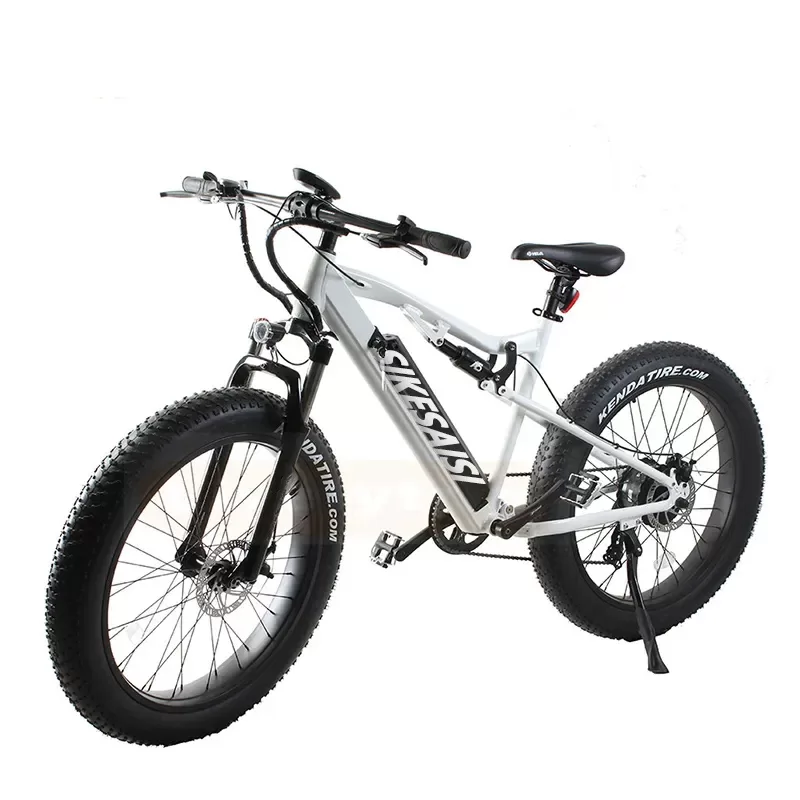

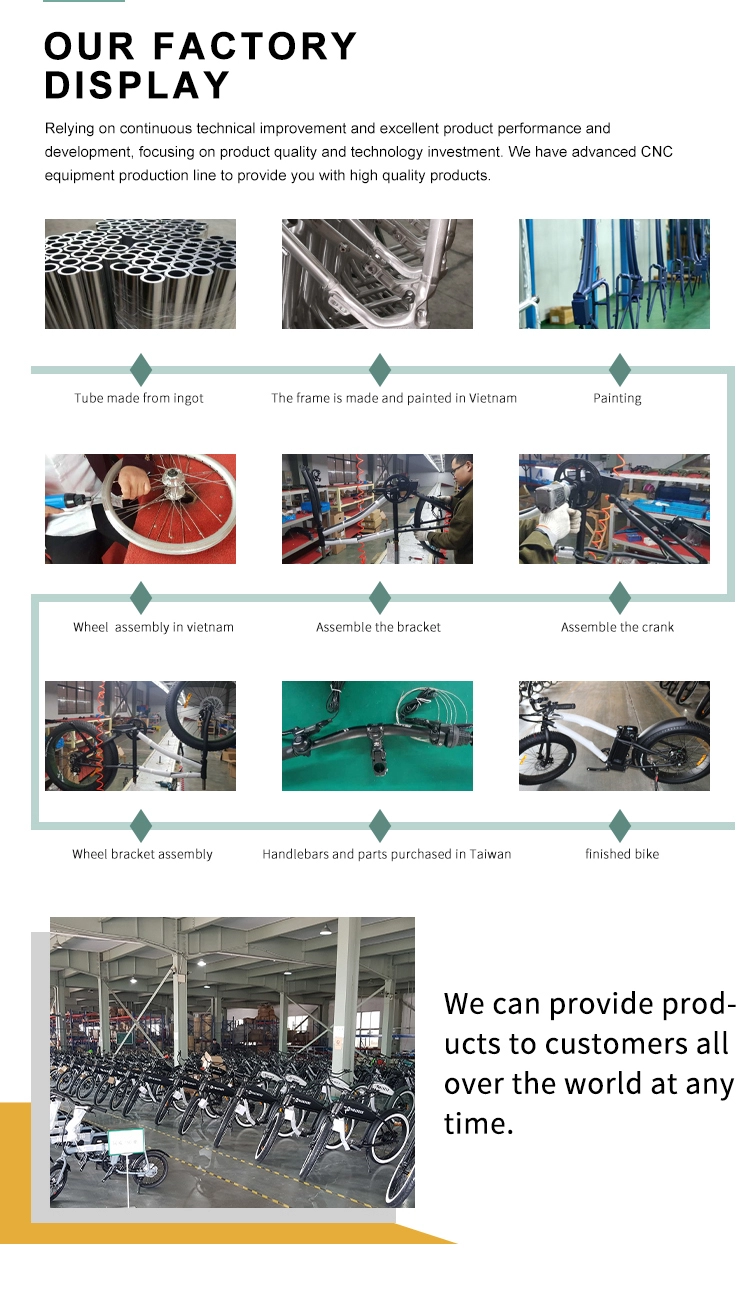
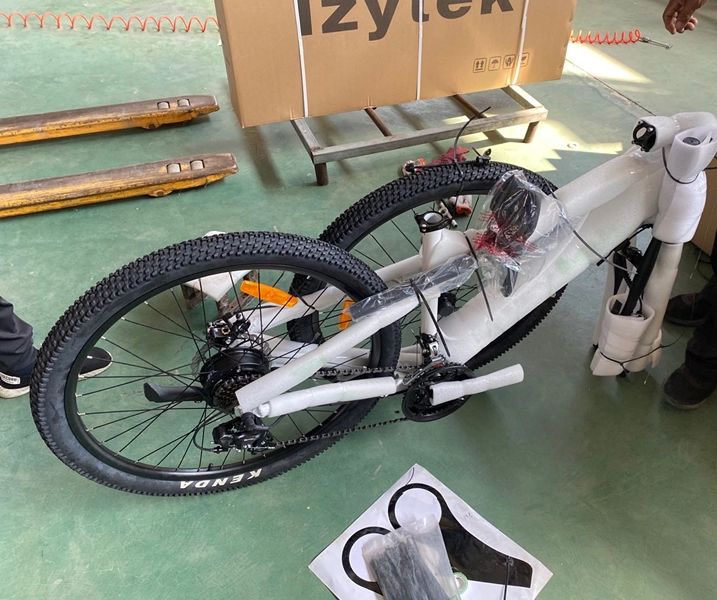


When you are going downhill in the snow on a snow bike, you need to make sure that the front wheel rolls smoothly on the road and never lets it get stuck in a hole. You should also know that if the front wheel suddenly digs in, it won’t be able to move you forward.
To do this, you need to lower yourself on the bike – even on gentle descents, you’ll need to be lower than usual – making sure your hips are behind the saddle and your heels are down.
Lowering your body allows you to bend your elbows more, so that if the front wheel drops, you only need to straighten your arms to maintain your body position. This prevents the front wheel from bearing too much weight. With your butt back and your heels drooping, when the front wheel sinks, this position allows you to give the bicycle an upward force through your feet and the central axis to keep the vehicle moving forward.
There is also the issue of vision. In ice and snow, vision is very important. When riding, try to look as far ahead as you can to look for any protrusions in front of you or broken ice that someone else has squeezed out.
I don’t agree with turning in the snow. I don’t think it’s a wise move. It’s very dangerous. Your movements need to be very correct. The key is to increase all normal high-speed cornering movements.
To lower the center of gravity, use the flexion of the limbs to absorb the sudden bounce; when turning, the outside footsteps down to the lowest point, but the outside knee remains bent, and the inside knee faces the apex of the turn; try to look at the end of the bend. Far away to gain the most planning time; put the weight of the car directly on the thick rubber particles on the surface of the tire.
If you’re going fast, be sure to lean your bike to the inside of the turn when turning. Even if the outer tire slips sideways, a small snowdrift will form behind the tire and act as a road shoulder. Practice sharp turns on a snow-covered flat or a gentle slope and feel how the tires grip the road in the snow – you’ll feel quite secure. Note: You still have to be careful, some friends have broken bones due to this fall.
I don’t agree with turning in the snow. I don’t think it’s a wise move. It’s very dangerous. Your movements need to be very correct. The key is to increase all normal high-speed cornering movements.
To lower the center of gravity, use the flexion of the limbs to absorb the sudden bounce; when turning, the outside footsteps down to the lowest point, but the outside knee remains bent, and the inside knee faces the apex of the turn; try to look at the end of the bend. Far away to gain the most planning time; put the weight of the car directly on the thick rubber particles on the surface of the tire.
If you’re going fast, be sure to lean your bike to the inside of the turn when turning. Even if the outer tire slips sideways, a small snowdrift will form behind the tire and act as a road shoulder. Practice sharp turns on a snow-covered flat or a gentle slope and feel how the tires grip the road in the snow – you’ll feel quite secure. Note: You still have to be careful, some friends have broken bones due to this fall. Of course, there are times when you don’t want a lot of grip in turns. If there is a sharp bend ahead and the traction is not enough, you can press the rear brake hard, swing your butt, lower your body, and drive the rear wheel out of the snow or mud. This is called a sideways turn.
You just have to get used to the feeling of rear wheel whip. It’s best to keep your body low and relaxed when flicking hard and keep your center of gravity on the vehicle when tilting it. Everyone must choose reasonable terrain and not ride on ice. You will appreciate the design of a fat tyre bike.
![]()



